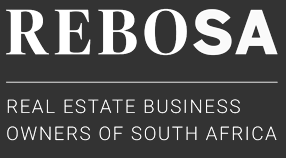4 Property resolutions for 2020 that are easier to stick to than you think
Category Newsletter: Lead Article
While there's nothing wrong with the very lofty, if somewhat cliched, resolutions that include things like losing weight, exercising, wasting less time on social media and being nicer to your in-laws, how about steering your resolutions into a different direction in 2020. Considering what a big investment, and commitment, a property is, it almost stands to reason that one should make resolutions that will benefit your property and serve you in the long term.
In addition to your personal intentions, how about committing to the following property resolutions?
Pay a little more into your bond every month
A property is a long-term investment (and commitment) but that doesn't mean you should make every effort to pay it off as soon as possible.
"The faster you pay off your bond, the more you save on interest and the sooner you can leverage that capital for further property investments," says Bruce Swain, CEO of Leapfrog Property Group.
One of the smartest property moves one can make is to pay more into your bond than is strictly required. As little as R500 extra each month can save you hundreds of thousands in the long term.
See the table below as a conservative example:
|
R1 million bond at 10%, payable over 20 years |
|
|
Monthly repayment = R10 000 |
Monthly repayment = R10 500 |
|
Total loan amount = R2 159 055 |
Total loan amount = R 1 996 794 |
|
Total loan term = 17.99 years |
Total loan term = 15.85 years |
|
Total interest R1 159 055 |
Total interest = R996 794 |
|
Difference in interest R500 a month makes = R162 262 |
|
"R500 a month is one less meal for two out, or simply saying no to a minor luxury - small sacrifices when compared to paid-up property," Swain points out.
Review the paperwork
While more paperwork and "admin" is unlikely to be on anybody's list of things to do in 2020, it is essential to occasionally review the documents that pertain to your property.
"Make a point of examining your home insurance schedule annually to make sure you know exactly what is covered and where potential shortfalls might be," Swain says.
Also check your levy statements, rates and taxes, and any other costs associated with your property to famialiarise yourself with exactly that you're paying for, Swain recommends.
It's also a good idea to have your property valued by a trusted property advisor. Swain explains: "Even if you're not thinking of selling knowing the value of your property is a useful way to determine the growth of your asset in real terms,"
Fix what's broken
Maintenance is a mission. It takes time, energy, effort and not to mention money. It's not uncommon to hear property owners say they feel like they're always having to do some form of maintenance or another. "Unfortunately property ownership and property maintenance go hand-in-hand. Keeping your asset in good nick requires actively looking after it by fixing what's broken, replacing what's outdated and generally keeping it neat, tidy, functional and in good working order," Swain says.
"Too often the reason for major maintenance is because the minor maintenance was ignored for an extended period of time," Swain shares. Adopt a houseproud mindset (it's your asset after all).
Be a good neighbour
It is probably a universal truth that everybody wants to have nice neighbours. And while it's not possible to quantify the value of good neighbours, it is widely accepted that a nice neighbourhood certainly adds to the value of your property.
Make a point of greeting your neighbours, stopping for a chat when you see them outside and having the courtesy to notify them if you're expecting guests whose cars will take up much of the communal road, or if you suspect your party might get noisy, or if you notice they accidentally forgot to close their garage door.
"Being friendly and looking out for your neighbours are two simple ways to contribute to a good atmosphere in your neighbourhood, and costs nothing and takes virtually no effort," Swain believes.
If you don't already have one, consider creating a street, block or complex WhatsApp group. Swain advises: "It's useful to have your neighbours' contact details on hand as they're likely to be the first people to reach you in an emergency. Make sure to keep the messages short and relevant."
More than "resolutions", the points listed here are really just good property practices. Looking after an asset will certainly reap rewards in the long term," Swain concludes.
Author: Leapfrog




